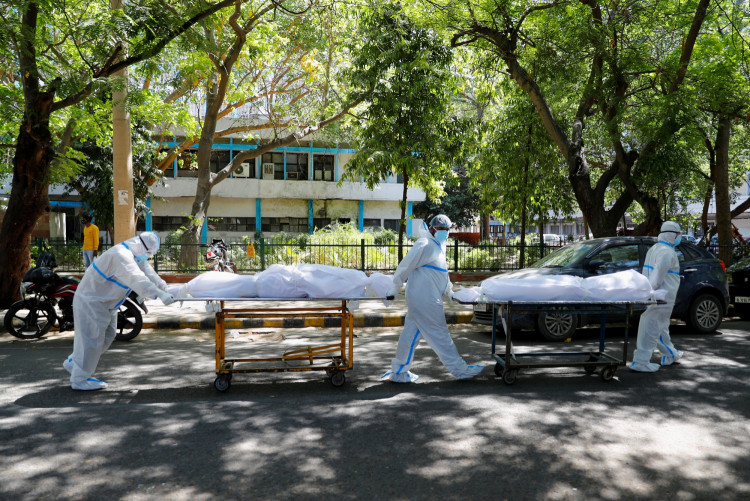As the health system struggles in the midst of the pandemic, a rare black fungus that invades the brain is increasingly being seen in vulnerable patients in India, including those with COVID-19.
The infection, known as mucormycosis, "is very serious, has a high mortality, and you need surgery and a lot of drugs to get on top of it once it takes hold," according to Prof Peter Collignon, the World Health Organization's expert on antibiotic resistance and infectious diseases.
The Centers for Disease Control and Prevention says mucormycosis is caused by a group of molds known as mucormycetes, which develop in soil and decaying organic matter such as rotting leaves and wood.
Mucormycosis most often affects people with compromised immune systems, such as those with diabetes and those taking medications that inhibit immune function. According to The New York Times, a growing number of COVID-19 patients in India appear to be contracting the infection.
The increase in cases could be linked to the use of steroids in hospitalized COVID-19 patients since the medications weaken the immune system, The BBC News reported. Diabetes patients are also at a higher risk of infection, long before they start taking steroids.
Several families have also had to treat relatives for COVID-19 at home, which means that people could have been exposed to the mold after receiving medication or oxygen treatment in less-than-sterile environments, The NY Times notes.
Patients in the early stages of black fungus infection often complain of a stuffy or bleeding nose, swollen eyes, droopy eyelids, or blurred vision. Black patches on the skin around the nose may also appear.
The Indian Council of Medical Research and the Union Health Ministry have issued an alert encouraging people to wear shoes, long pants, long sleeve shirts, and gloves when handling soil, moss or manure.
People should also practice good personal hygiene, make sure their diabetes is under control, and medical professionals should stop using immune-suppressing drugs like steroids as soon as they are able, according to the ministry.






